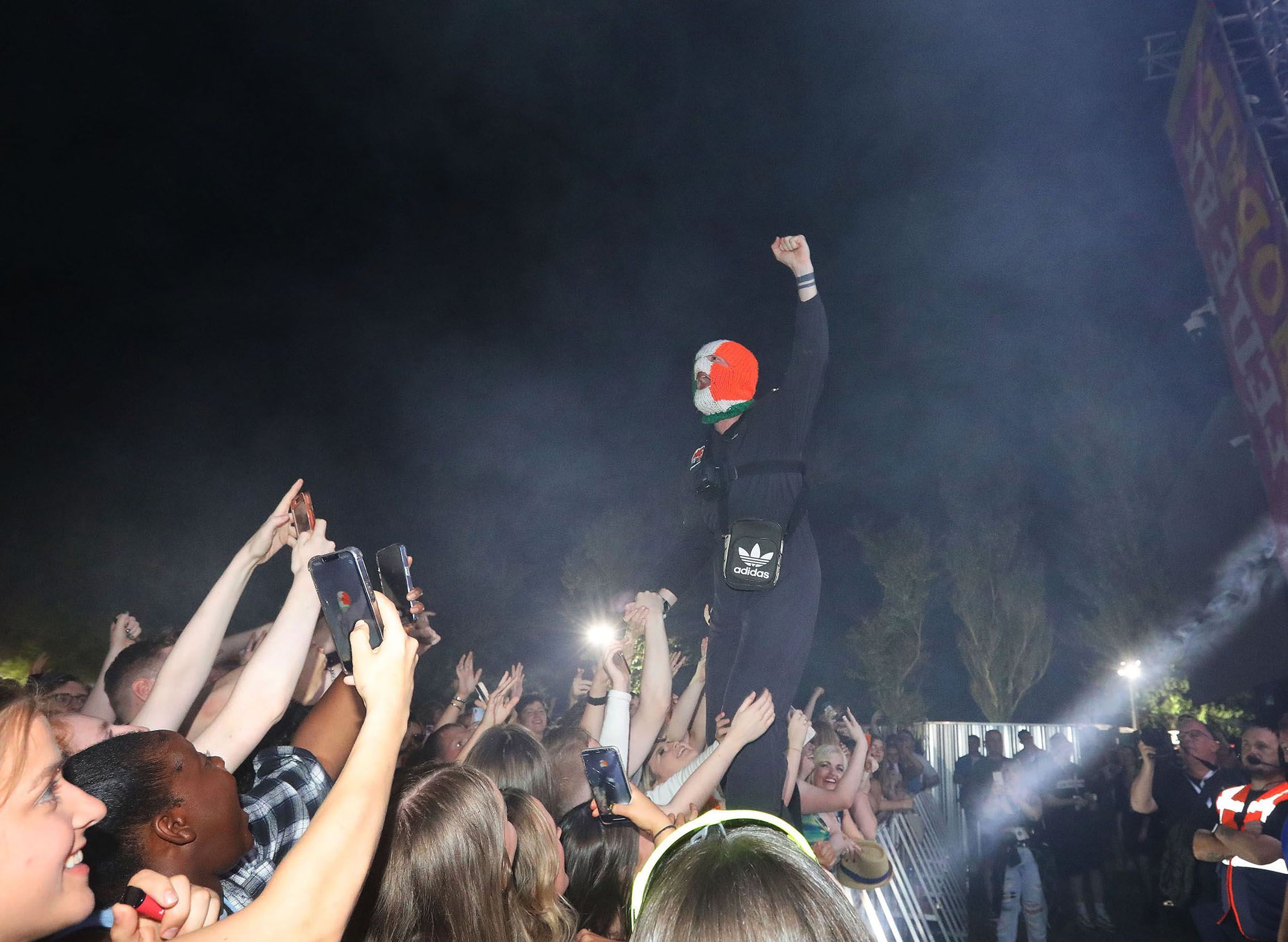‘Kneecap’ is a snarling, sniggering joyride of a movie, 'The Blues Brothers' if Jake and Elwood grew up in Andytown.
Director and writer Rich Peppiatt captures the fiery energy of a Kneecap live performance and let that energy infect every scene of the film. Inventive visuals that blend VFX, practical effects and animation meet and elevate a sharp and funny script.
Full disclosure: I’ve been a fan of Kneecap since C.E.A.R.T.A. but I was dreading going to see this. Why? Well, I hate biopics – the rise, the fall, the rise again… Not that that was necessarily going to be a ‘Kneecap’ problem. For one, how can you play the typical slow fall to drug addiction when the lads are very happily on gear from the first three minutes of the film?
More importantly, I - whisper it – tend not to like movies set in the North. I’ve heard too many sincere speeches about this place, what we are, what we could be. Give me something to eat popcorn to!
KNEECAP tickets are now ON SALE! You've seen the trailer we were allowed to get away with for cinemas, now see who Kneecap truly are in the BRAND NEW TRAILER! Parental advisory, viewer discretion and all that stuff advised! #MindYourLanguage #KneecapFilm #KneecapMovie 🇮🇪 💊👃❄️ pic.twitter.com/VaQk2SheRD
— Curzon Film (@CurzonFilm) July 25, 2024
‘Kneecap’ throws off the cliches for a plot-light, joke heavy romp through modern Belfast set against the rise of An Dream Dearg.
Rich Peppiatt has gotten impressive performances out of first-time actors Mo Chara (Liam Óg Ó hAnnaidh), Móglaí Bap (Naoise Ó Cairealláin) and DJ Próvaí (JJ Ó Dochartaigh).
Mo Chara’s love across the barricades story is mostly played for laughs, but it gets those laughs.
Moglaí Bap shares the screen with acting titan Michael Fassbender, playing his on-the-run dad Arlo, and holds his own. Simone Kirby plays his mother Dolores in a subtly moving performance. A recluse suffering from depression, Dolores could feel like a victim in someone else’s hands, but Kirby shows her inner strength.
In one scene, a police officer interrogates her, threatens her son, and mocks her inability to leave her home. The line Kirby spits at her made me punch the air.
DJ Próvaí has the storyline that rang the truest, and the one that I think many Irish speakers of mine and his generation will connect with. As a hard drinking, drug taking DJ in a tri-colour balaclava by night, and a respectable teacher in a meánscoil by day, he is torn.
Do we harm the language by trying to make it apolitical? What does the face of the Irish language movement look like? Does it matter if 7-year-olds are rapping about doing class A drugs – as long as they’re rapping in Irish?
‘Kneecap’ doesn’t try to answer those questions, although you might leave thinking about them. What answers those questions will be whatever and whoever comes after Kneecap.
There’s a recurring analogy in the movie about the Irish language being like a dodo behind museum glass and how Kneecap want to smash the glass. But it isn’t a dodo - for one thing, dodos were flightless. And that's neither us nor Kneecap for, as this movie demonstrates in spades, something is rising, soaring in ár dteanga.





